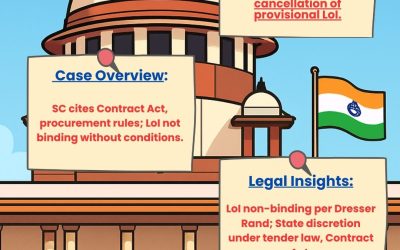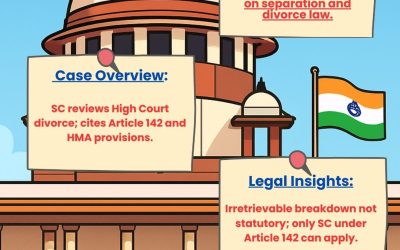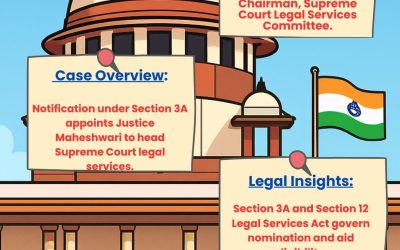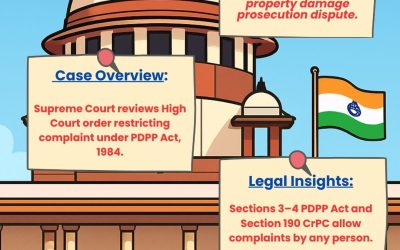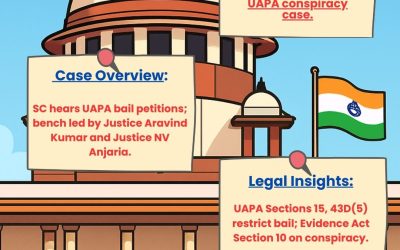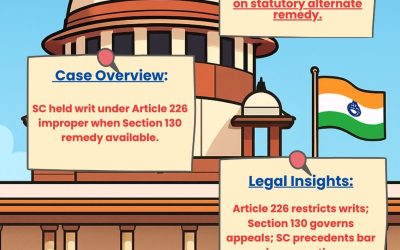Why in NewsBefore CJI Gavai retired, Supreme Court CRP releases ten reform reports advancing judicial reform . |
Discover powerful Latin Maxims and simplify complex legal terms in seconds.
Facts
Release of Ten Landmark Reports by the Centre for Research & Planning, Supreme Court of India
Overview
Just before Chief Justice B.R. Gavai demitted office, the Supreme Court of India achieved a major institutional milestone through the publication of ten significant reports by the Centre for Research & Planning (CRP) . Led by Dr. Anurag Bhaskar with Secretary General Shekhar C. Munghate, these reports cover judicial terminology reform, caste discourse, indigenous rights, legal aid, prisons, menstrual leave, child rights and judicial AI ethics . This initiative reflects a shift towards evidence-based, rights-sensitive judicial governance .
Step into the world of justice with Courtroom Chronicles
Key Aspects
Before proceeding to the specifics, it is important to understand that these reports were developed to fill critical administrative, linguistic and rights-based gaps within the judicial system across High Courts and district courts .
- Caste-coded and colonial terminology still present in High Court service rules .
- Need to map Supreme Court’s evolving judicial language on caste over 75 years .
- Lack of uniform systems for appointing law clerks in High Courts and district courts .
- Insufficient frameworks addressing indigenous rights, menstrual leave policy and child protection .
- Ethical concerns arising from unregulated artificial intelligence in courts .
- Gaps in legal aid defence training and inconsistent prison administration standards .
Legal Insights
Before listing the provisions, note that each report draws directly from constitutional and statutory mandates governing equality, rights protection, due process and institutional accountability .
- Articles 14 & 15 of Constitution of India – Equality and Non-Discrimination: Mandate replacement of derogatory, caste-coded and colonial designations in court service rules .
- Articles 244, 275 & Fifth/Sixth Schedules – Indigenous Rights: Provide constitutional protection for Scheduled Tribes, enabling self-governance, land rights and administrative safeguards; supported by UNDRIP principles .
- Article 21 – Right to Life, Dignity & Humane Treatment: Guides prison reform, menstrual health standards, technological safeguards,m and ethical treatment of detainees .
- Article 22(1) & Legal Services Authorities Act, 1987 – Legal Aid Rights: Guarantee legal representation and institutional responsibility to ensure competent defence counsel .
- Articles 15(3), 39(f) & Juvenile Justice Act, 2015 – Child Rights Protection: Mandate special protections for children, focused on welfare, safety and justice-oriented rehabilitation .
- Articles 14 & 21 – Ethical AI Use in Judiciary: Ensure fairness, transparency, due process, and protection against algorithmic bias in judicial tools .
Conclusion
While not a judicial verdict, the Supreme Court officially released the ten CRP reports, with Chief Justice Gavai praising the Centre’s contributions during his farewell ceremony . This marks a foundational step toward a research-driven, modern and transparent judicial ecosystem .
Source – Supreme Court of India
Read also – Constitution of India
The LawGist ensures exam success with quality notes—TPL, Current Affairs, Recent Judgments, and more. Backed by trusted resources and videos, The LawGist is every aspirant’s first choice.


